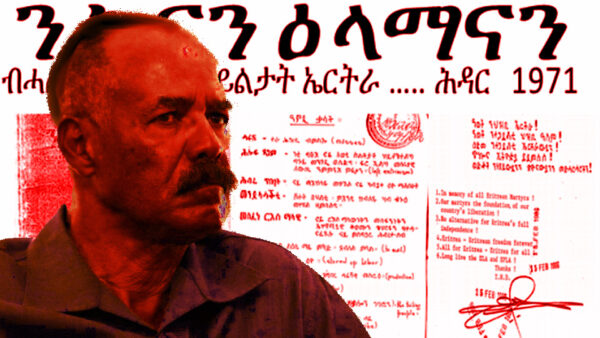The Enigma of The Bologna Conference

This article is systematically produced to entertain with different perspectives about Bologna Conference based on content analysis and empirical data done with the intention to develop a ground for healthy political discussion and debate among Eritreans regardless their political thoughts. We should view this article keeping in mind that there are difficulties of analyzing the available information largely brought on the basis of assumptions, political motivated interpretations or vague descriptions over “ulterior motives” of the conference, if there is, because this topic needs deeper research to be assessed from all the parameters in order to reach in rational conclusion. Thus, I attempt to avoid certain unsubstantiated rhetoric intended to focus on tangible and well evidenced information though it is still subject to further investigation. So far the article formulates a thoughtful analysis largely treating the “national interest” as the focal point of my scrutiny that may direct to the collective action for well being of our nation. And your constructive comment is definitely significant for constructive discussion.
********
For the last ten years the people of Eritrea have been described as hot tempered, aggressive, dissected, intolerant, amateur democrats etc. Some eloquent people stated “We, Eritreans, have agreed not to agree with each other”, but I do believe that our forefathers had partly different experiences, and succeeded to develop a strong customary or traditional laws what we called it “Higi InDaba” that enabled them to govern and regulate their daily activities to live in harmony though they experienced all sorts of conflicts- land issues, lootings, power struggle, and other confrontation, but they had strong values, norms and traditional rules to manage their conflicts sitting under big trees, “Daro” so as to resolve their disparities. The system was virtually more advanced and civilized than the Machiavellian tactics of governance or absolute authoritarian system that the ruling party, PFDJ, use to govern and maintain Eritrea, a modern state, in 21st Century. In these old times, at least we had a parliament at village or community level, “Bayto”, to address our problems instead of indulging in the law of jungle.
This traditional institutions were partly damaged by the introduction of Italian colonial system; and the values of native courts, political pluralism and freedom of speech, though they had positive and negative effects, got relative ground during British occupation which became a benchmark for the foundation of semi-democratic state under the Ethiopian crown in 1950’s. The internal constitutional rights of Eritreans were systematically demolished; and paved way for final annexation in 1962. Eritreans involved in army confrontation in which the nationalists lost the art and skills of negotiation; and became very violent and intolerant among themselves to achieve their objectives. The negative side of the armed struggle still polarizes the political system of “independent” Eritrea. The mismanagement of justice and socio-economic crisis have resulted a lot of political grievances and the formation of many political parties which has to be intended to develop a practical democracy in Eritrea with a notion of tolerance, integrity, openness and transparency.
Nonetheless, the opposition parties have least tolerance and skills to manage and resolve their conflicts; they may be the other face of the same coin of PFDJ. What it makes them different: they do not have the real power to exert of their wish. We can objectively define and test them when we put them in actual power. In fact the Bologna conference has partly tested the lenience and the spirit of developing “collective struggle” against regime change in Eritrea. Seyom Tesfaye underlined, “The underlining principle that every Eritrean group has the right to organize its own meeting without asking permission or approval from any other organization has to be firmly stated. This democratic principle makes the Bologna Summit a legitimate meeting. Those who are working hard to abort or subvert this meeting have deficiency in understanding democratic rights”. The event significantly questioned the level of maturity, capacity and optimization of democratic values and principles among opposition parties.


Awate Forum